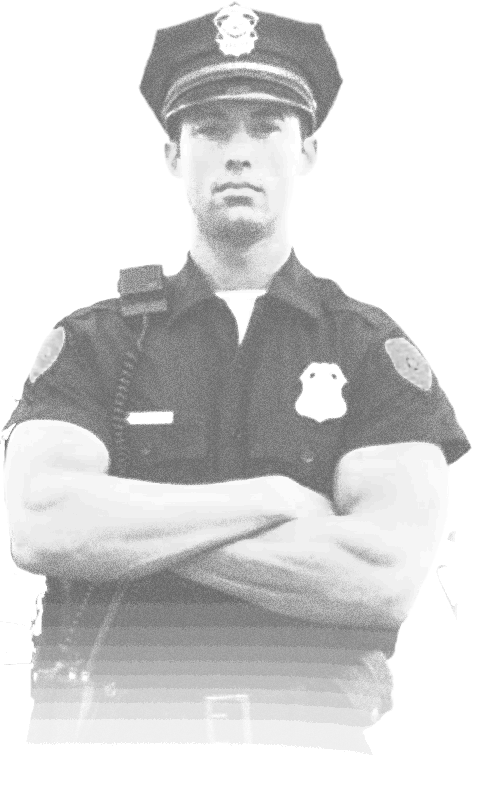


House Bill 492: An Important Step To Address PTSD And Mental Health With Our First Responders
May 15, 2021
By Phil Rollinson, Division Board Member, Eastern Coastal Chapter President
A recent meme circulating on social media provided a somewhat abstract observation of the mental health of first responders by stating, “First responders get into the job to change the world and end up changed by the world.”
Some variation of the same sentiment has circulated for years and reminds us of the sacrifices law enforcement officers and all emergency services providers make for the well-being of others. While it is true most of those who enter any of the first responder fields do so to provide care for others, it is often the responders themselves who suffer the most from traumatic experiences throughout their career. Research regarding the prevalence of mental health and Post Traumatic Stress Disorder in the first responder community is somewhat limited, though there are ongoing studies on the subject.
Potential rates of PTSD in law enforcement officers have been shown to be anywhere between 7% and 35%. New York Police Department uniformed psychologist Daniel Rudofossi said “officers could potentially be exposed to no less than 900 traumatic events over the course of a 30-year career”. [1] Noted police psychologist Ellen Kirschman, who has over 30 years of experience working with first responders, believes, based on her research, the rate of PTSD in officers to be somewhere in the 19% to 34% percent range. [2] It should be evident, based on this limited overview, that something needs to be done to care for those who care for others in the community.
The concern for all first responders, is where untreated PTSD and other mental health challenges can lead. The most devastating outcome is one in which the individual suffering commits suicide. According to Blue H.E.L.P., a suicide awareness and prevention resource for first responders, the number of officers who took their own life in 2020 was 174. So far in 2021, 93 officers have ended their lives. [3] Based on this overview, it is apparent that more work is needed to help first responders get the help they need.
However, the law in North Carolina relating to on-the-job injury and workers compensation only allows individual coverage if the employee can point to one single event resulting in the injury. The law also does not factor in the cumulative traumatic exposure of PTSD.
Realizing this need, the PBA sought out primary sponsors for this critical legislation that had the appropriate background, experience and understanding of this crucial issue. Reps. Donna White, Kristin Baker, Carla Cunningham and Mike Clampitt were appreciative of the opportunity to help.
White, the lead sponsor on this important legislation is a career nurse and has worked with law enforcement throughout her career as an aging and health specialist assisting elderly victims of fraud and abuse.
Baker is a psychiatric physician and is board certified in both general adult psychiatry and child adolescent psychiatry.
Cunningham is a nurse and health care professional and has long been an advocate for access to mental health care.
Clampitt is a retired firefighter who witnessed firsthand the issues of PTSD during his career.
On April 8, 2020, HB 492 (Workers Compensation for Psychological Trauma Related Injuries) was introduced on the House floor. The bill would provide that PTSD, without other injury is a compensable occupational disease when it arises out of employment as a first responder and the PTSD resulted from the first responder acting within the course of his/her employment. The PTSD would have to be diagnosed within a reasonable degree of medical certainty and the result of employment activities. The bill also requires employing agencies of first responders, including volunteer first responders, to provide educational training related to mental health awareness, prevention, mitigation and treatment.
On May 5, the bill was heard in the Health Committee. During the committee meeting, each bill sponsor spoke on the need for HB 492.

Bradly Evans Speaking to the Committee
After offering sobering statistics and an explanation of the bill, White gave real life examples of what officers, emergency communications officers and firefighters see every day in the performance of their duties.
“When you do this 365, many times several shifts a day or a week, you don’t get over it,” she said.” You can’t just brush it away.”
At the conclusion of her remarks, she asked the committee members for a favorable report.
Clampitt spoke about some of his personal experiences as career firefighter to include those burned in building fires and plane crashes. He recalled a burning plane crash to which he responded.
“The only thing burning, after the call, was the three people on the plane,” he said. “In 31 years, I’m here to tell you, every shift when you see it day in and day out, it does take a toll.”
Baker used her time and professional experience to emphasize that intervention is possible with PTSD, and it can change the outcome.
“I really appreciate the opportunity to shed light on this and to hopefully provide the intervention needed for those heroic workers,” said Baker.
Cunningham rounded out the primary sponsors’ remarks by addressing the long-term effects of PTSD.
“Most scars are not visible to the naked eye, but are deeply embedded in first responders, law enforcement and lots of healthcare professionals’ hearts and minds for a lifetime,” she said.
Perhaps the most compelling testimony came from Bradley Evans, during the public comments time. Evans, a veteran Cary police officer, was involved in a shooting incident with another agency before coming to Cary. Although he survived the shooting, he recounted his experience and what he put his wife and child though because of the “demons” and stress.
PTSD “is something nobody should go through. There was no help for me,” Evans said. “We had EAP (Employee Assistance Program) through the department and they do a lot of great things, but most of the time they don’t understand the public safety aspect of it.”
What he was going through eventually led him to move his family and take a job with the Cary Police Department. Evans said that for a time his life was better, but eventually the feelings came back again, along with the hopeless feeling that there was no one to help him. He recounted pulling his patrol vehicle to the side of the road one day and pulling out his service weapon in a despondent moment.
Fortunately for Evans, his weapon ended up in the passenger floor of his car and he decided he needed help. That help came through his supervisor who told him about the Family and Medical Leave Act, a federal program. Evans went to his Human Resources Department and was able to file the appropriate paperwork, and with his physician’s approval, use his own sick time.
This allowed him to have a paycheck and continue with his health insurance benefits. Evans’ testimony before the committee put into perspective the seriousness of PTSD and that the help that is available places the burden almost solely on the person needing the assistance.
As a result of the testimonies shared, HB 492 received a favorable report and on May 6, it passed in the House Chamber by a unanimous vote. The bill sits in the Senate Rules Committee awaiting a hearing.

PBA Delegation with Bradly Evans, Rep. Mike Clampitt,
and Donna White after the Committee Hearing
The NCPBA would like to thank everyone for their support of this important legislation. The sponsors of HB 492 should be commended for their support and for shepherding this legislation through the house.
Evans’ story truly illustrates the importance of this bill. HB 492 will allow first responders to get the help they need and return to the public safety work they were called to do. The NCPBA will continue to fight for this critical piece of legislation because losing one first responder to the horrors of PTSD is one too many.
[1]Cops and PTSD: Why you should care, what you can do. Ellen Kirschman. (n.d.). Retrieved Sept. 3, 2021, from https://ellenkirschman.com/cops-ptsd-care-can/.
[2]Cops and PTSD: Why you should care, what you can do. Ellen Kirschman. (n.d.). Retrieved Sept. 3, 2021, from https://ellenkirschman.com/cops-ptsd-care-can/.
[3]The numbers. Blue H.E.L.P. (Aug. 31, 2021). Retrieved Sept. 5, 2021, from https://bluehelp.org/the-numbers/.
May 21, 2025
Cooper Barbour, recent graduate of South Johnston High School in Four Oaks, North Carolina, calls herself "driven" to persevere towards her goal of working in the mental health field.
moreApril 30, 2025
Liliana Ashburn leads a busy life as a health science student at East Tennessee State University in Johnson City.
moreMarch 12, 2025
Abby Ashburn, of Belew's Creek, North Carolina is "very thankful" that she was chosen to receive a scholarship for the North Carolina Division of the SSPBA through the Police Benevolent Foundation.
more